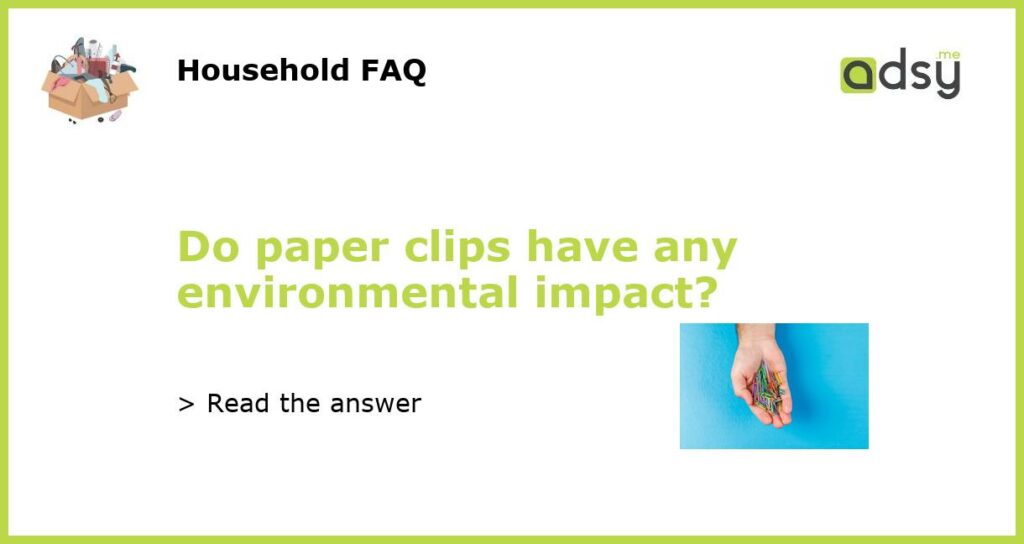Introduction
Paper clips are small, simple metal fasteners that are widely used in offices, schools, and homes to hold papers together. While they may seem harmless and insignificant, many people wonder if paper clips have any environmental impact. In this article, we will explore the environmental implications of paper clips and determine whether they contribute to environmental issues.
Manufacturing Process
Paper clips are typically made from stainless steel, which is a blend of iron, chromium, and nickel. The manufacturing process of paper clips involves several steps, including wire drawing, cutting, bending, and coating. The wire used for making paper clips is typically sourced from iron ore, which requires mining and processing. This extraction process has its own environmental impacts, including habitat destruction and pollution.
The manufacturing process also requires energy and resources, such as water and electricity. The extraction of raw materials and the production of steel contribute to greenhouse gas emissions and other forms of pollution. Additionally, the coating process, which involves applying a thin layer of zinc or plastic to the paper clip to prevent rusting, may involve the use of chemicals that can be harmful to the environment.
Usage and Disposal
When it comes to usage, paper clips are generally reusable and durable. Many people reuse paper clips multiple times before discarding them. This reduces the overall environmental impact compared to single-use plastic alternatives, such as staples or adhesive tapes. However, paper clips can still contribute to waste if they are not properly reused or recycled.
When paper clips reach the end of their lifespan, they can be recycled along with other scrap metal. Recycling paper clips helps conserve resources, reduces the need for new production, and minimizes waste. However, not all recycling facilities accept paper clips, or they may require separating them from other metals, which can be time-consuming.
If paper clips are not recycled and end up in landfills, they may contribute to metal contamination in the soil. Metals can leach into groundwater, potentially causing harm to ecosystems and water sources. While paper clips are relatively small compared to other forms of metal waste, their accumulation over time can still have detrimental effects on the environment.
Alternatives and Sustainable Practices
There are alternative options available that can help mitigate the environmental impact of using paper clips. One option is to use reusable paper clips made from recycled materials. These paper clips are often made from recycled steel or other metals, reducing the need for new production and minimizing resource consumption.
Another alternative is to embrace digital solutions and reduce the reliance on physical paper documents. By moving towards a paperless office or adopting digital storage methods, the demand for paper clips, as well as other office supplies, can be reduced. This not only saves resources but also reduces the environmental impact associated with their production and disposal.
Additionally, implementing sustainable practices in the office, such as proper recycling and waste management, can help minimize the overall environmental impact of using paper clips. Ensuring that paper clips are separated from other waste and sent for recycling can contribute to a more circular economy and reduce the need for new production.
Conclusion
While paper clips may have a relatively small environmental impact compared to other sources of pollution and waste, they do contribute to environmental issues. The extraction of raw materials, the energy and resources required for manufacturing, and the potential for waste accumulation in landfills all play a role in their environmental footprint.
However, the environmental impact of paper clips can be mitigated through sustainable practices, such as recycling and embracing reusable alternatives. By making conscious choices in our usage and disposal habits, we can minimize the environmental implications of using paper clips and move towards a more sustainable future.






